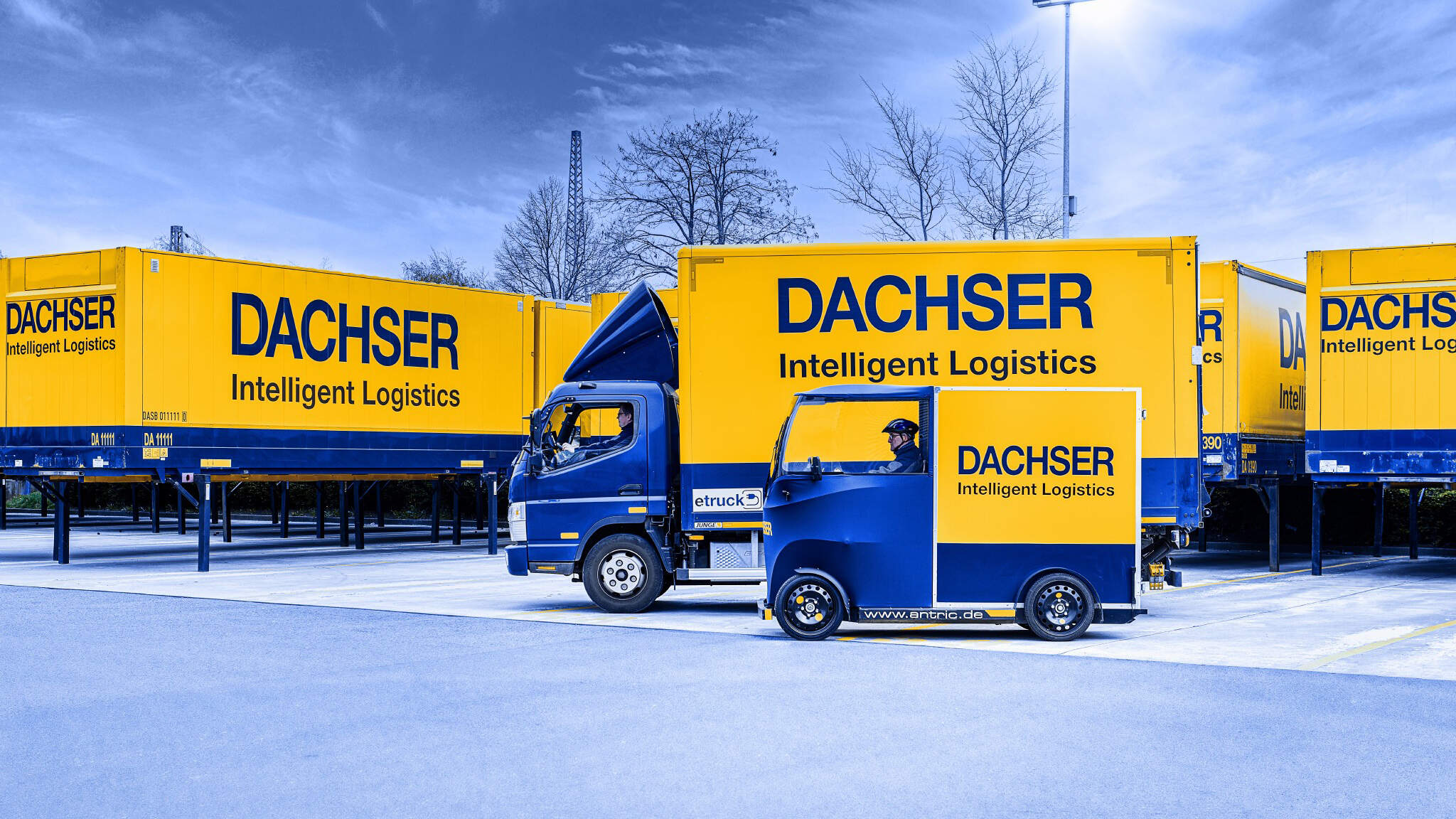Environmental and climate protection at DACHSER
For DACHSER, as a logistics service provider, making a valuable contribution to environmental and climate protection is a key task and a challenge. Transport and warehousing are energy-intensive and are currently still creating a significant CO2 footprint until new technologies become more widely available. The number of transports by road, rail, water and air will continue to increase concurrently with global economic growth. Logistics services therefore need to be made less and less harmful to the climate by exploiting technical possibilities to optimize the logistics footprint of our customers, including with a view to their own sustainability goals.
Offering “climate-neutral” logistics by trading in compensation certificates is not a viable long-term solution for DACHSER. It doesn’t improve either climate protection or energy- and emissions-intensive companies. It’s better to actually avoid and reduce emissions – even if this is far more complex and difficult. Only when all options for the technical reduction of emissions have been exhausted, are projects to compensate greenhouse gas emissions justified. However, these projects need to be carefully checked on the basis of recognized quality standards and our own assessment.

DACHSER focuses on four action areas to achieve significant progress in environmental and climate protection: Process efficiency, energy efficiency, research and innovation and social commitment beyond the company.
Process efficiency avoids unnecessary transports and energy consumption from the outset using optimally planned and implemented goods and information flows. This is an important lever for reducing greenhouse gas emissions, both from a customer and from a service provider perspective. The DACHSER network is a highly efficient transport and logistics network that is based on the optimum mix of centralized and decentralized planning, modern facilities and IT systems as well as the high skill level of all employees and partners.
In this way, logistics processes are being continually improved, for example using artificial intelligence or Internet of Things applications. Other effective instruments for optimized process efficiency are loading trucks as much as possible, for example by using mega trailers and long trucks, targeted avoidance of unloaded mileage and conscious use of multimodal transports in combined transport.
Energy efficiency means deploying the latest energy saving solutions and using available emission-free and low-emission technologies. Progressive energy-efficient solutions are used in our network, in transit terminals, warehouses and offices and also when transporting goods.
This means for example that at DACHSER all logistics facilities worldwide are operated using 100 percent green electricity. At the same time, the company is accelerating investment in PV installations on its own buildings. LED lighting, battery-powered forklift trucks and lower energy consumption through heat recovery also count toward the efficiency goals. Added to this is the use of modern vehicles and increasingly, alternative drives. In defined downtown areas, all unrefrigerated shipments are already delivered emission-free by electric truck or cargo bike as standard. This concept – DACHSER Emission-Free Delivery – will have been implemented in at least 24 European cities by the end of 2025.
DACHSER supports research and innovation for developing new technologies and concepts for emission-free logistics through different partnerships. Emission-free logistics refers to vehicles, fuels and energies that do not emit greenhouse gases or air pollutants, in accordance with the legal requirements of the European Union. For trucks, only battery electric (BEV) and hydrogen-powered fuel cell electric vehicles (FCEV) count as relevant zero-emission vehicles.
Zero-emission vehicles are being trialed specifically for local and long-distance transport at three e-mobility locations in Germany. In addition, digitalization and AI-supported process optimization play an important role because efficiency also saves emissions. To this end, the DACHSER Enterprise Lab was formed with the Fraunhofer Institute IML, among others. Everything here revolves around innovations that make the flow of goods and related processes more digital, efficient and sustainable.
As part of its sustainability and climate protection strategy DACHSER is committed to social and societal issues that go beyond the company’s direct business interests. DACHSER summarizes these activities under the term Corporate Citizen+. The protection of the natural resources plays a big role in the projects. This is especially important in developing and emerging countries, which are severely impacted by the consequences of climate change.
Since 2005 DACHSER has been helping people to help themselves together with the international children’s aid charity terre des hommes. It improves educational opportunities and living conditions for children and young people with various projects in South Asia, Southern Africa and Latin America. DACHSER also supports sustainability projects in Africa and South-East Asia by the charitable foundation myclimate. The focus of the existing projects is direct climate protection with the reduction and avoidance of greenhouse gas emissions.

External assessment of our sustainability and climate protection activities
Our commitment to greater sustainability is captured in the rankings on assessment platforms such as Carbon Disclosure Project (CDP) and EcoVadis.
The non-profit organization CDP assesses the activities of companies in the areas of Climate Change, Water Security and Forests. The CDP rating is considered the gold standard in environmental reporting in the global business world. Once a year, data and information on CO2 emissions, climate risks and reduction targets and strategies are collected from companies on a voluntary basis using a standardized questionnaire: In 2023, DACHSER received a Level B rating based on completing the Climate Change questionnaire. Level B, or Management Level, is awarded if coordinated measures on climate protection have been taken.
EcoVadis is an international assessment platform to determine sustainability along the whole supply chain. It covers four themes, Environment, Labor and Human Rights, Ethics and Sustainable Procurement. The assessment is carried out using a questionnaire and queries about the above themes. The medal therefore also represents a snapshot of the sustainability activities at the time of the assessment. DACHSER achieved 52% in the ranking, which corresponds to a bronze medal.


